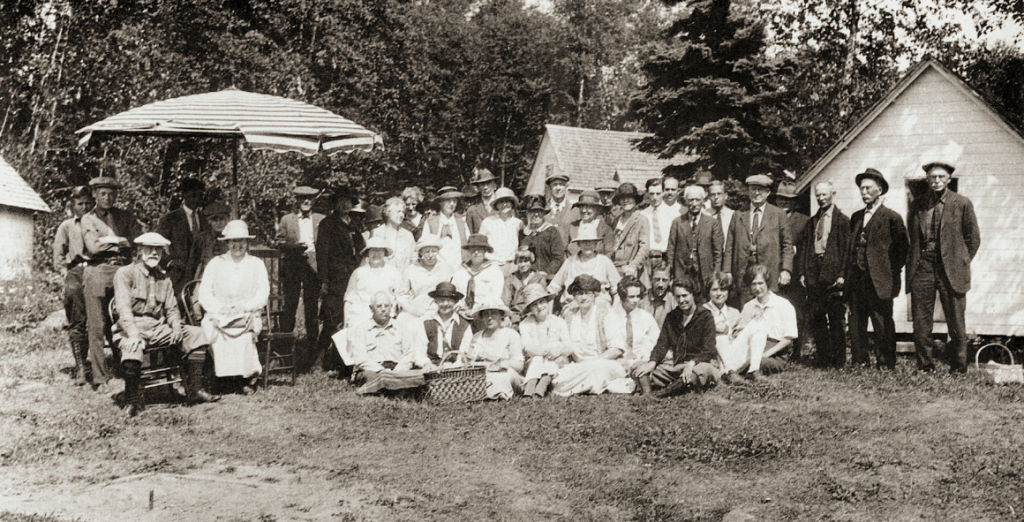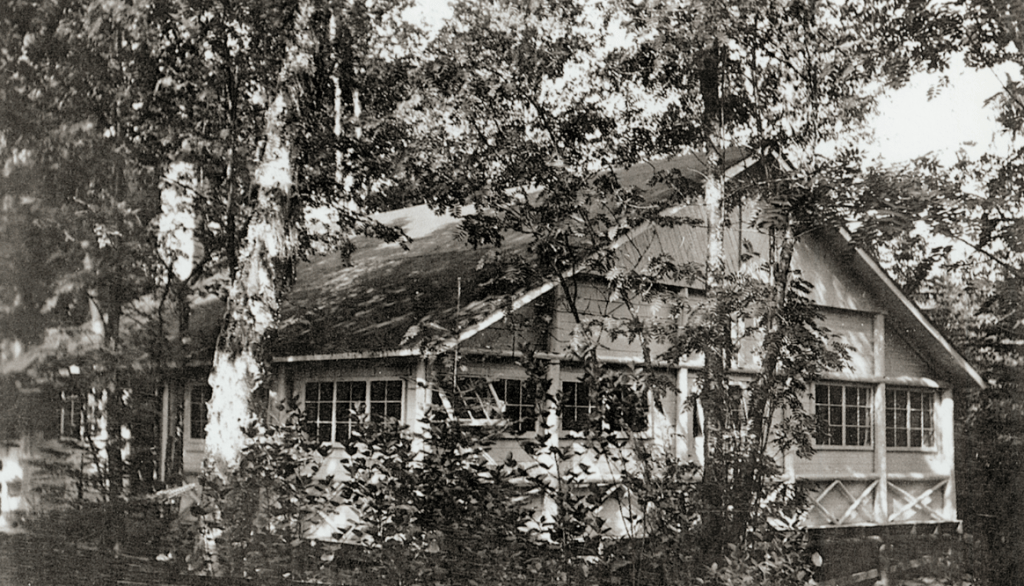
By Charlie Mahler, Wilderness News Contributor
In a brewing controversy reminiscent of those surrounding the removal of cabins and resorts in the Boundary Waters Wilderness and Voyageurs National Park, holders of life leases to cabins in Isle Royale National Park are seeking to change sales agreements their families made with the Park Service leading to the establishment of the island park in 1940.
With many lessees – typically the former minor children of islanders who sold land for the park while retaining provisional rights to their vacation homes – reaching old age they, through efforts of their organization, the Isle Royale Family and Friends Association, are seeking to extend claims to their vacation “camps” beyond the generation of family members named in the original agreements with the government.
Roughly a dozen families, many of whose surnames decorate the Isle Royale map, still hold private claim to ancestral cabins in the 572,000 acre park which is otherwise almost entirely wilderness. The Park Service owns the land on which the private cabins stand as well as the cabins themselves. Lessees own the personal property inside their cabins and have rights to the cabins during the lives of those listed in the original agreement.
In the last decade, a handful of cabins have reverted to the Park Service, while others have stayed with families who have negotiated temporary access to their ancestral dwellings via special use agreements after the death of the last listed lessee.
Beginning in late 2003, however, the Association has attempted to engage the Park Service in discussions to grant the remaining lessees indefinite leases. The Association argues that the families’ continued presence in the Park is critical for the preservation and interpretation of the cultural history of the park.
“I don’t think the Park Service can allocate the funds or has serious enough interest in keeping up the structures unless people are there to keep them up themselves,” Grant Merritt, vice-president of the Association says. “It costs money and I don’t think they want to spend the money on that.”
Additionally, Merritt stresses that the life lease-holding families are vessels for vast amounts of cultural history regarding the island and the families who settled it, and should get consideration on that account. “I don’t think just preserving structures up there makes a lot of sense,” he said.
The Association has been offering guided tours, hosted by family members, of some of the historic cabins. The Association is also underwriting a documentary film about island families and has hopes of establishing an interpretive program for park visitors.
Sensing that another avenue might be needed to reach their goal of continued occupancy, however, and encouraged by the recent passage of a law protecting a similar historic vacation community in a California national park, the Association recently informed Park Superintendent Phyllis Green that it would seek federal legislation to ensure permanent residence in the park.
“We’re going to work with the Park Service all the way up to the Director in Washington to see if they are making any changes in their traditional view, that the inholders should be removed when the life leases expire, or if they are going to change in light of the Mineral King case,” Merritt said. “We don’t want to delay getting a bill introduced in Congress to pursue the legislative action.”
“I don’t think the Park Service can allocate
the funds or has serious enough interest in
keeping up the structures unless people are
there to keep them up themselves,”
– Grant Merritt, Isle Royale Family and Friends Association
Mineral King is a community of vacation cabin residents in Sequoia National Park that won the right to indefinite residence in the park after legislation passed by the last Congress was signed into law by the President in late 2004. The community won its rights, over the opposition of the local Sierra Club chapter, in part by characterizing itself as a living historic community.
Marvin Roberson, the Mackinac (Michigan) Chapter of the Sierra Club’s Forest Policy Specialist suspected the organization would oppose similar legislation aimed at extending life lessee tenure on Isle Royale.
“Those houses were purchased, not taken without compensation,” he explained. “And, a life lease is fairly generous. Many leases are 25-year leases. We’re in favor of as few structures and as few permanent residents in the park as we can have.”
Roberson noted that lease holders across the national park system typically fight the termination of their occupancy, and typically lose the fight.
So far, Superintendent Green has kept the Association’s proposals at arm’s length. In her written responses to Association correspondence, Green has acknowledged the importance of the original lessees and their families to the park, has largely supported the educational and interpretive efforts the Association has undertaken or is planning, but has stopped short of opening the door to extending the leases.
Green did offer the Association the possibility of providing housing for Association members working on cultural and historical projects supported by the Park Service, but wouldn’t commit to “unrestricted continued use” of the members own summer cabins after the lease had expired.
Association President David Barcum dismissed Green’s offer in a letter earlier this year asking rhetorically: “How would we convince anyone among our families to expend time, energy and financial resources in the goal of preservation of historic park resources in those circumstances?”
Green ultimately looks to the Park’s Cultural Landscape and Historical Resources planning process as the proper avenue to determine the future of the park’s historic physical structures. Green admits, however, that the planning process will likely take three years and is only in the early stages.
Likely scenarios for cabins and other historic buildings – many of which are eligible for consideration for National Register status – in the park include use by Park Service officials (the Artist in Residence and a Park Service law enforcement ranger each use ceded cabins now), use as short-term rentals to the general public, preservation as museum-like historic sites, and demolition.
“Some folks I talk to would like to see them quietly molder away or be demolished,” Green offered. “Some folks that we talk to say, the cabin owners had a great opportunity for a long time, if you’re going to keep them as a historic structure can the public have access to them?”
Green encouraged citizens make their opinions on the topic known to the Park Service. Citizens can be placed on a mailing list to receive information about the cultural and historical planning process by contacting Liz Valencia at Isle Royale National Park, 800 East Lakeshore Drive, Houghton, MI 49931-1895 or liz_valencia@nps.gov.


